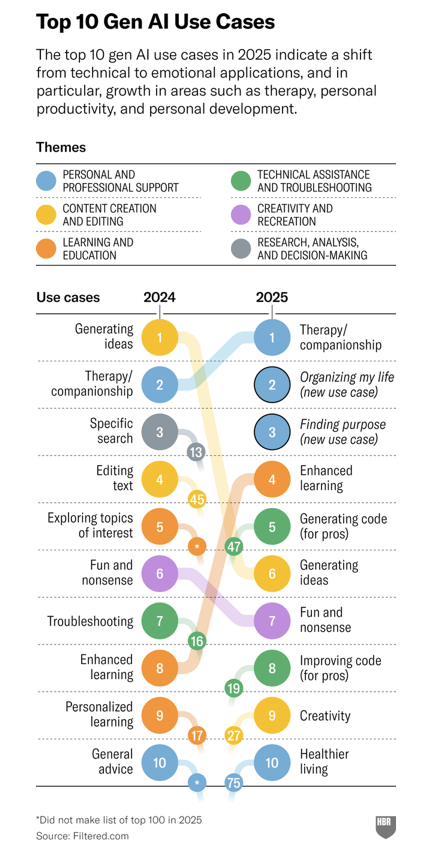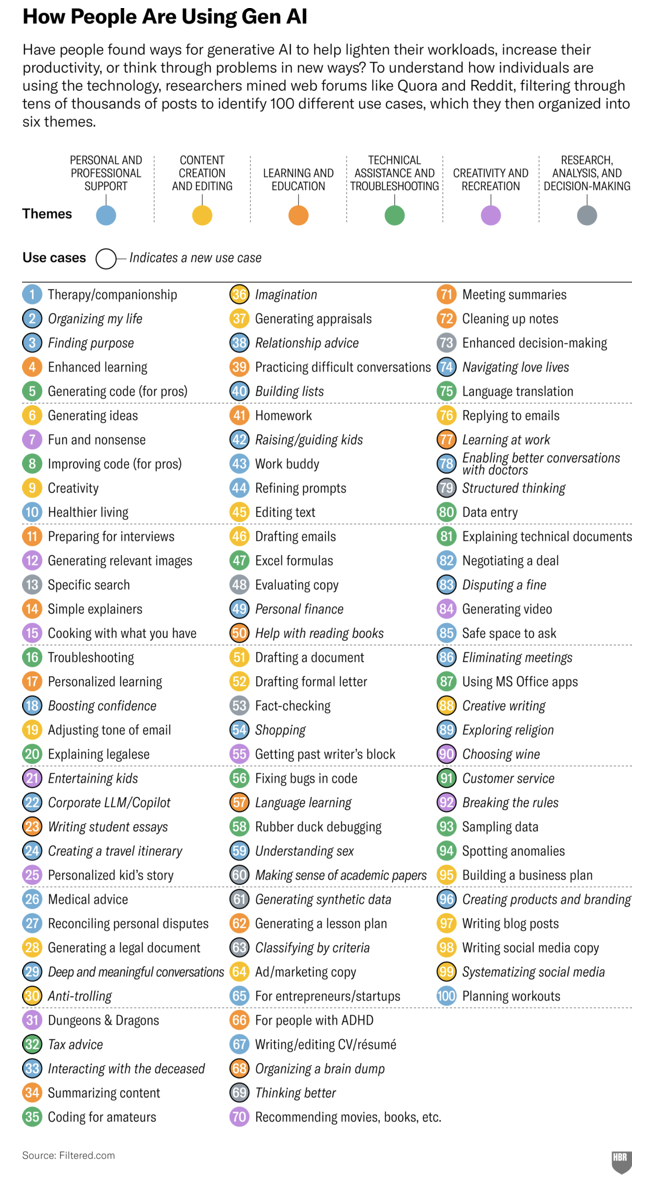Unlocking the Potential of Generative AI in Marketing: Insights and Opportunities
New research highlights a surprising revelation: marketers are not leveraging Generative AI to its fullest potential. While this powerful technology serves a multitude of personal applications, it lags in the marketing arena.
The Surprising Findings: Marketing vs. Personal AI Uses
According to the “Top-100 Gen AI Use Case” report by Marc Zao-Sanders, there’s a notable disparity in AI’s deployment between personal tasks and marketing responsibilities. The report uncovers a trend: as individuals increasingly utilize AI for personal support, marketing-centric applications like ad creation and social media content are ranked remarkably low.
A Shift in Focus: From Technical to Emotional Applications
The Harvard Business Review shed light on the data through an analysis of online discussions regarding AI use. Over the past year, the focus has transitioned from strictly technical tasks to more emotional and personal applications. The top three uses now include:
- Therapy and companionship
- Life organization
- Finding purpose
Zao-Sanders emphasizes this critical shift:
“The findings underscore a marked transition from primarily technical and productivity-driven use cases toward applications centered on personal well-being, life organization, and existential exploration.”
In stark contrast, marketing applications rank much lower on the list, with key tasks such as:
- Ad/marketing copy (#64)
- Writing blog posts (#97)
- Social media copy (#98)
- Social media systems (#99)
This gap clearly demonstrates that marketers have yet to fully capitalize on the immense potential of Generative AI.
Understanding the Adoption Gap: Why Aren’t Marketers Jumping In?
So, why is generative AI not dominating marketing strategies? Several factors contribute to this phenomenon. Zao-Sanders posits that many marketers might have an outdated perception of AI usage.
“Most experts expected AI would prove itself first in technical areas. While it’s doing plenty there, this research suggests AI may help us as much or more with our human whims and desires.”
Additionally, research indicates that users have honed their skills in crafting prompts and have a clearer understanding of AI’s limitations.
Learning from the Top-Performing Use Cases
Marketers have much to gain by examining what makes the top AI applications so successful. Here are a few standout features to consider:
Emotional connection: Users gravitate towards AI that embodies a personal and supportive touch. Marketing tools could benefit by adopting a more conversational and empathetic tone.
Life organization: AI tools are frequently used to structure various tasks. Marketers should concentrate on tools that streamline workflows rather than solely focusing on content creation.
- Enhanced learning: AI is increasingly valued as a learning tool. Marketing applications could emphasize how they promote skill-building and training.
Interestingly, “Generate ideas” ranked #6 on the list, suggesting that the brainstorming process could serve as an excellent entry point for marketers rather than rushing to produce finished content.
Practical Steps for Marketers to Embrace AI
Based on these insights, here are actionable steps marketers can take to harness the power of generative AI:
Highlight personal benefits: Focus on how AI tools enhance personal aspects, not just productivity.
Study effective prompts: Explore the report for examples and adapt them to your marketing needs.
Connect personal and professional uses: Tools that address both contexts generally see higher adoption rates.
- Address data privacy concerns: Be transparent about data protection strategies to alleviate user worries.
Looking Ahead: The Future of Generative AI in Marketing
In closing, Marc Zao-Sanders reflects on the continual evolution of AI technology:
“Last year, I made the correct but rather insipidly safe prediction that AI will continue to develop, as will our applications of it. I make exactly the same prediction now.”
Now is the opportune moment for marketers to dive into these transformative tools. While marketing may represent one of the lesser-utilized areas for generative AI, it signifies that you’re not falling behind—there’s immense room for growth.
By learning from successful AI applications, you can craft better strategies that meet both customer needs and market demands. For a deeper dive into the findings, check out the full report which provides invaluable insights and guidance for refining your approach to generative AI in marketing.
Note: To further explore the impactful use of generative AI and its emerging trends, see the attached screenshots showing insights from the research report.


Image Credits: Krot_Studio/Shutterstock






